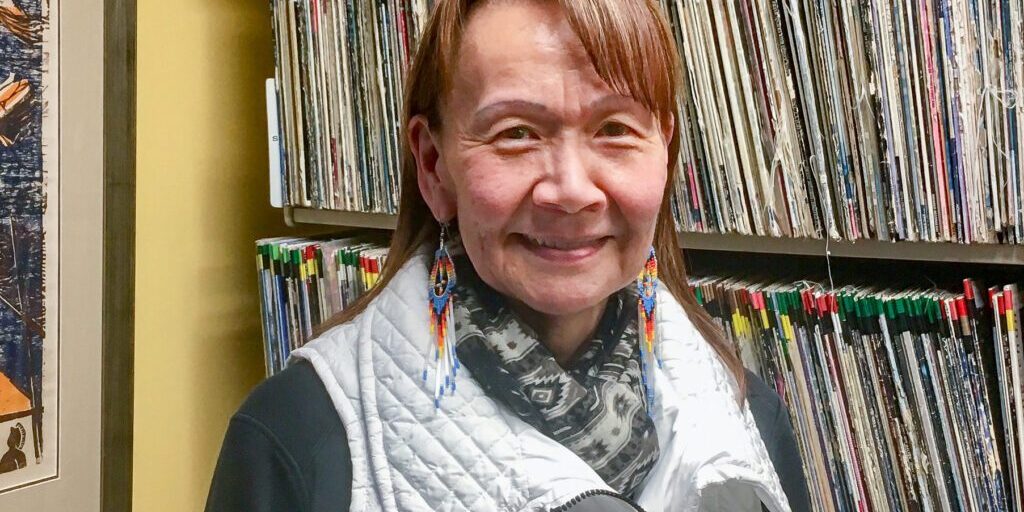Savoonga’s Viola “Vi” Waghiyi is one of the 26 members chosen by President Biden and Vice-President Harris for the new White House Environmental Justice Advisory Council. The advisory council will provide advice and recommendations on how to address current and historic environmental injustices across the United States.
“It is an honor, not only as a Sivuqaq Yupik grandmother and Native Village of Savoonga tribal citizen, but as an Arctic Indigenous person who has been working on environmental health and justice issues going on 19 years.”
– Vi Waghiyi
As the environmental health and justice program director at Alaska Community Action on Toxics (ACAT), Waghiyi has advocated for environmental health on her native St. Lawrence Island. Since the end of the Cold War, her tribal community has been trying to hold the US military accountable for toxic contamination resulting from two Cold War bases. This is one way she will exercise her voice.
“[To] make sure that the priorities – including military toxic contamination and the persistent organic pollutants – are at the forefront with this Administration. These have resulted in health disparities never before seen in our people.”
Persistent organic pollutants, or POPs, have contaminated the food supply for subsistence diets. St. Lawrence Islanders are experiencing a range of related health issues – including cancer – due to POP contamination.
“Even though we don’t have manufacturers or chemical plants, we are finding them [POPs] in our backyards, in our lands and waters, in our bodies, and in our most sacred traditional foods that have sustained our people for millennia.”
According to Waghiyi, the Yupik people still feel the benefits of maintaining their traditional diet outweigh the risks.
Her appointment confirms the federal government’s growing geopolitical interest in the Arctic. While different branches of the US military have announced plans for operating, once again, in Alaska and the Arctic, Waghiyi recognizes that a seat at the table in Washington is timely and important.
“It is so important because a lot of times we are never at the table when decisions are being made for us miles and miles away. This will ensure that we have a voice at the White House.”
The Council was established to confront longstanding environmental injustices and to ensure that historically marginalized and polluted, overburdened communities have greater input on federal policies and decisions.
The Council members represent a diverse set of geographical regions and will serve in a voluntary capacity offering recommendations in a number of areas including climate change mitigation and resilience, toxics, pesticides, pollution reduction in overburdened communities, and tribal and Indigenous issues.
Image at Top: Vi Waghiyi in KNOM studios. Photo Credit: Zoe Grueskin, KNOM.




